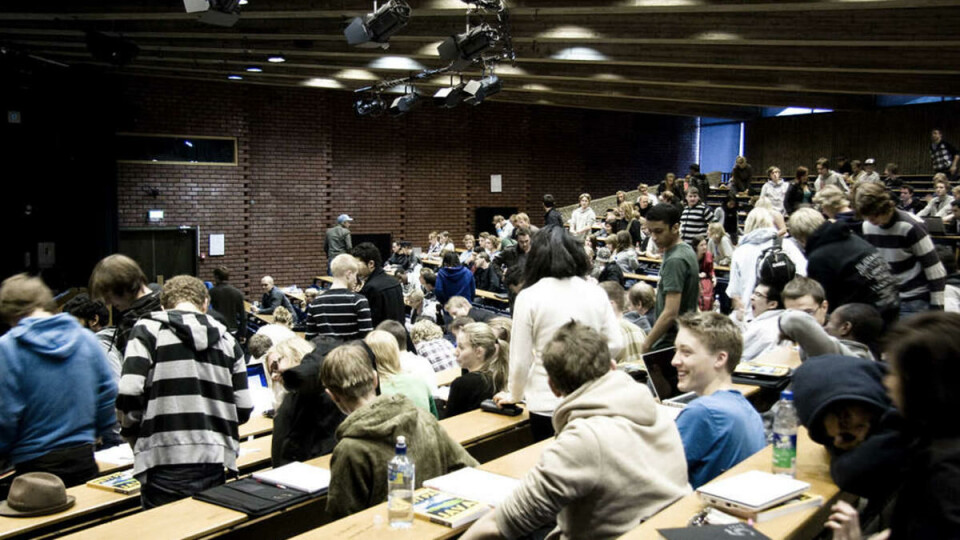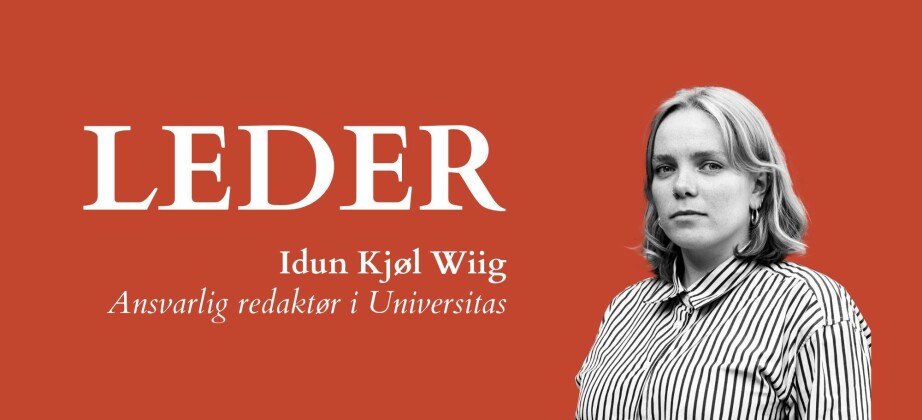
Straight on and down
The economical benefits of education are decreasing in Norway compared to the other OECD-countries, according to a new report. – The situation is critical, says The Federation of Norwegian Professional Associations, The Norwegian Association of Researchers and The Confederation of Unions for Professionals, Norway.
– It is pretty serious that Norway, a country that calls itself a nation of knowledge, doesn't pay the people with a higher education better, thinks Anders Folkestad, the leader of The Confederation of Unions for Professionals, Norway.
The OECD-report Education at a Glance that was presented on Tuesday reveals that Norway is one of the countries where higher education has the least to say when it comes to income in working life. Norway comes last on the list of the 30 OECD-countries, way below average and only above New Zealand.
– It’s self-contradictory when it’s not worthwhile to get a higher education. And the effect is doubled since so many women in the public sector is stricken by this, says Folkestad, whose view is shared by The Federation of Norwegian Professional Associations.
– It seems to be a trend that the earnings from a higher education develop in the wrong direction compared to other countries. This trend needs to be turned around, says Knut Årbakke, leader of The Federation of Norwegian Professional Associations.
Will lead to lack of competence
The politicians, however, do not seem to be worried by the situation.
– To even out the differences between Norway and the other OECD-countries we need to regulate the tax on the income. It is a paradox that Norway is so preoccupied with the thought that so many should get a higher education when it isn’t worthwhile, says Svein Flåtten, deputy representative in the election committee at the Storting.
Flåtten thinks that by giving lower payments to well-educated people will have an advantage when it comes to competition. Competence is cheap in Norway compared to other places. But both The Federation of Norwegian Professional Associations and The Confederation of Unions for Professionals, Norway think that the situation is serious, and that it will be difficult to get the best people in an increasingly international job market, both in academia and in the business community.
– I am critical towards attitudes that say that low payments are positive for your competing ability. I am critical! And I think it will bring its own punishment. Both the environment and the challenges when it comes to climate are dependent on will to go in for knowledge, thinks Anders Folkestad, leader of The Confederation of Unions for Professionals, Norway.
Worst for the public sector
Heikki Holmås from the Socialist Left Party of Norway’s thinks it´s wrong to look at lower differences in income as something negative, as he sees economical equalization as a benefit.
– A lot of the differences between the income level for those with an education from upper secondary school and those with a higher education gets equalized by the fact that many choose to take out their payment in vacation or leaves of absence, claims Holmås.
Seeing that the public administration in Norway has a remarkable number on employees with an academic background, the Federation of Norwegian Professional Associations thinks that the welfare state can be on the way down if nothing gets done.
– We are already struggling with the fact that there are many academics that work in the public sector who aren’t paid adequately. The government doesn’t prioritize those with a higher education and they need to realize soon that the right thing to do is to do more, says Årbakke.
Education always relevant
– Of course the low income to people with a higher education decide whether people get a higher education or not! It’s a shame that we need a financial crisis before people apply for a higher education. We can’t have a situation where people go for education only during bad times, says Anders Folkestad, leader of The Confederation of Unions for Professionals, Norway.
The people with a higher education in the Czech Republic, Poland, Portugal and the US keep getting a high income because of their many years in school. On the top of the list we find Germany, Hungary and Italy, who have had the highest increase in profit maximizing after completed studies.
– We can’t keep on with underpaid work. Labor unions and the government have a big responsibility in this case, and a change must happen, says Bjarne Hodne, leader of The Norwegian Association of Researchers.
Offensive payment politics is to be prepared in The Norwegian Association of Researchers during this fall. They are to prepare initiatives that can help lift Norway up to a decent level compared to the rest of the OECD-countries.
































